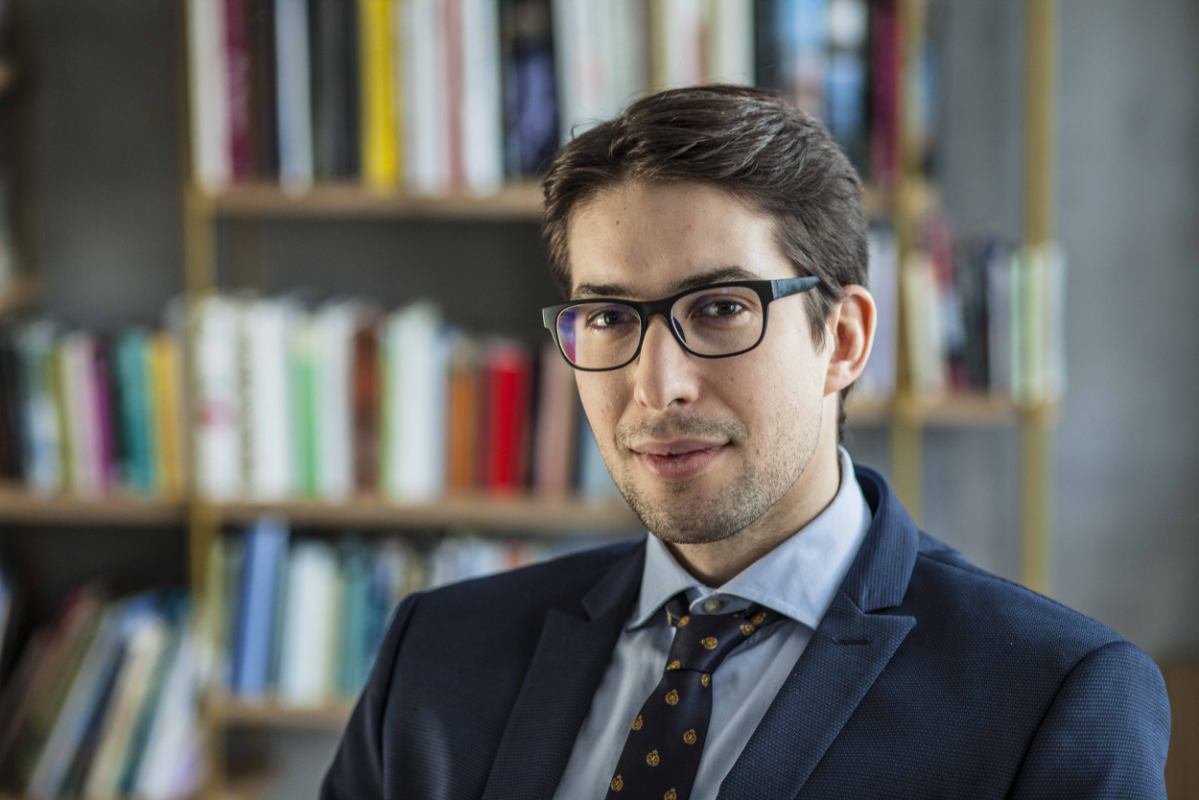ROBERT MATIĆ

- Postgraduate doctoral studies in Business Economics at the Faculty of Economics and Business in Rijeka
- Gained work experience in the public sector (Primorsko-goranska County), after which, he entered into entrepreneurial waters
- President of the Primorsko-goranska County Youth Council, through which he promotes and advocates the rights, needs and interests of young people in Primorsko-goranska County
- Former professional basketball player and
passionate recreational athlete
When did the idea for enrolling into a doctoral program at EFRI first come to you?
Towards the end of my graduate studies, I decided that I would like to
continue with my academic development. During my studies, I had the
opportunity to participate in the ERASMUS program, which allowed me to spend a semester
in Berlin during my graduate studies. Actually, through my studies I took the
opportunity to participate in other foreign business schools and programs in
countries such as United States, Finland and England. After much
deliberation and comparison of the quality of studies in other countries, I
decided to enrol in doctoral studies at the Faculty of Economics and Business
in Rijeka, given the quality of education provided so far.
>> Find out all about doctoral studies at EFRI HERE
You are an entrepreneur and therefore you are, let’s say, an untypical doctoral student - what made you decide to pursues a doctoral degree?
On the entrepreneurial side, I believe that in the long run, a doctoral study is certainly a worthwhile investment. It takes a lot of work, learning, sacrifice and investing in yourself, but in the end, it all pays off manifold. The fact is that the most competitive companies are those that quickly and successfully adapt to the growing and frequent demands on the market. Consequently, there is a rapid increase in the demand for education and continuous professional advancement of workers. Alongside formal education, it is also necessary to acquire certain experiences, skills and working habits and in such case, a doctorate has a far greater value and gives you the advantage over the competition. I believe that in addition to economic goals, the doctorate also contributes to a more active role of the individual in the society by encouraging social inclusion, the development of active citizenship and the development of an individual’s potential. Namely, doctorates are no longer intended exclusively for people who work or plan to work at higher education institutions; they are also quite important in many professions because they bring higher quality to the labour market.
What do you expect to gain by your doctorate career-wise?
A doctoral degree is primarily important in the development of an academic career, but it also responds to the growing demands of the labour market, which needs people who will be ready to create new knowledge, new products or methods of work. In addition to research competencies, the doctoral studies also develop various skills (research and presentation skills, project management, critical thinking ...), and they prepare one to face new challenges in the society and the economy. Having a 10%, higher salary is not the point of a doctorate, at least not for me. For me education is one of the greatest values, because it positively contributes to the development of every human being, allowing him or her to realize his or her potential in all fields.
How can doctorates and research within dissertations affect the private sector?
Nowadays, education is perceived to be the foundation of the development and success of the society and the knowledge economy. Knowledge and innovations obtained through research within doctoral dissertations can definitely have a positive impact on both the private and the public sector. For example, my research focuses on public finances, which should be researched given that the share of general government expenditure in GDP in Croatia is around 50%, which indicates a significant role of the state in our economy, primarily through welfare state institutions, but it can also indicate an irrational spending of public funds. A qualitative research and application of quantitative methods on relevant and representative samples may generate results that could lead to rationalization and a more efficient use of resources in the public sector; and we know that an efficient public sector can greatly contribute to private sector growth. Naturally, it is important to have the obtained results implemented in practice and to become aware that doctoral research can be a means in achieving the strategic goals of the entire society.
What is your experience so far of studying at EFRI and what would you say to those who are considering enrolment?
During my doctoral studies, I have participated in lectures, research seminars, workshops and had the opportunity to study outside my home institution at the University of Vienna through a student exchange program. I have obtained and improved my skills in problem-solving, analytical and critical thinking, and the conduct of independent research. EFRI boasts of quality teaching staff and an excellent management board, who constantly strive to improve and implement a more innovative curriculum. I would also like to thank my mentor, prof. dr. sc. Helena Blažić, on her cooperation and her great help in bringing my doctoral studies almost to the end. What I would like to say to the future EFRI doctoral students is that they will have the opportunity to learn from top experts and gain a unique combination of knowledge, competencies, skills and motivation. They will have a chance to develop their creativity, which is essential in developing scientific research competencies, and which will enable them to become leaders in the field of economic thought in the Republic of Croatia and beyond. It is also important to note that more and more employers are becoming aware of the need for highly educated staff and encourage completion of doctoral studies by completely or partially covering the costs of studies, so before enrolling, make sure to look into this possibility.











